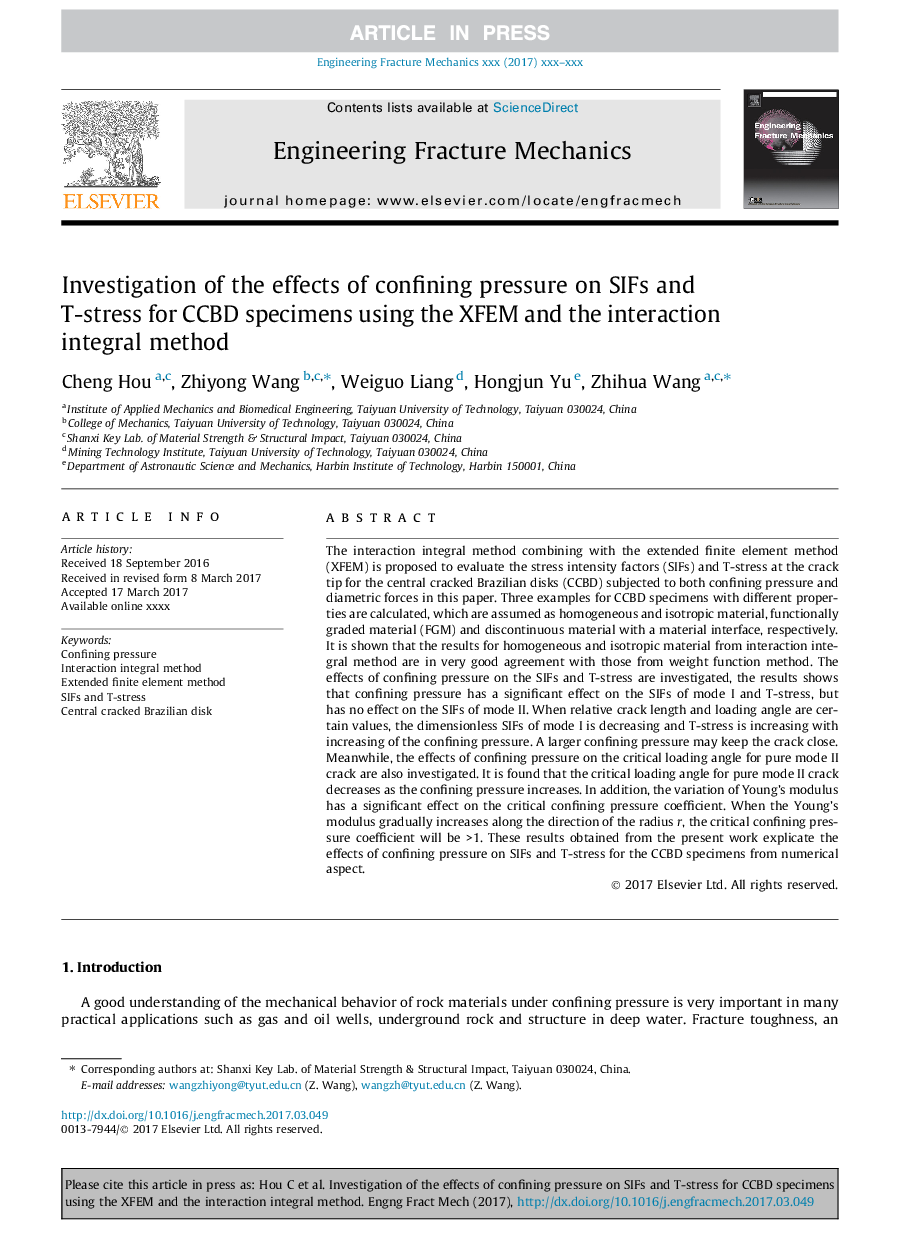| Article ID | Journal | Published Year | Pages | File Type |
|---|---|---|---|---|
| 5014033 | Engineering Fracture Mechanics | 2017 | 22 Pages |
Abstract
The interaction integral method combining with the extended finite element method (XFEM) is proposed to evaluate the stress intensity factors (SIFs) and T-stress at the crack tip for the central cracked Brazilian disks (CCBD) subjected to both confining pressure and diametric forces in this paper. Three examples for CCBD specimens with different properties are calculated, which are assumed as homogeneous and isotropic material, functionally graded material (FGM) and discontinuous material with a material interface, respectively. It is shown that the results for homogeneous and isotropic material from interaction integral method are in very good agreement with those from weight function method. The effects of confining pressure on the SIFs and T-stress are investigated, the results shows that confining pressure has a significant effect on the SIFs of mode I and T-stress, but has no effect on the SIFs of mode II. When relative crack length and loading angle are certain values, the dimensionless SIFs of mode I is decreasing and T-stress is increasing with increasing of the confining pressure. A larger confining pressure may keep the crack close. Meanwhile, the effects of confining pressure on the critical loading angle for pure mode II crack are also investigated. It is found that the critical loading angle for pure mode II crack decreases as the confining pressure increases. In addition, the variation of Young's modulus has a significant effect on the critical confining pressure coefficient. When the Young's modulus gradually increases along the direction of the radius r, the critical confining pressure coefficient will be >1. These results obtained from the present work explicate the effects of confining pressure on SIFs and T-stress for the CCBD specimens from numerical aspect.
Related Topics
Physical Sciences and Engineering
Engineering
Mechanical Engineering
Authors
Cheng Hou, Zhiyong Wang, Weiguo Liang, Hongjun Yu, Zhihua Wang,
